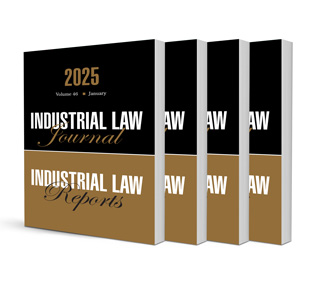Deeltitels en sommige van die gevolge van die wegval van die reghebbende eienaar

REGSPRAAK
Deeltitels en sommige van die gevolge van die wegval van die reghebbende eienaar
Authors: JC Sonnekus en EC Schlemmer
ISSN: 1996-2207
Affiliations: University of the Witwatersrand
Source: Tydskrif vir die Suid-Afrikaanse Reg, Issue 2, 2025, p. 411-432
https://doi.org/10.47348/TSAR/2025/i2a14
Abstract
A unit in a registered sectional titles scheme is classified as an independent thing that can be the object of real rights. The legislature regulates in detail the legal principles applicable when eg a flat in an existing apartment building becomes a “unit” or “section” when the building is subsequently registered as a sectional title scheme. However, no provision is made for a reversal of the legal position relating to a single unit apart from the rest of the units in a building, when the building is no longer to be considered as a sectional title scheme and the unit reverts back to its original status of a flat forming part of the erf on which the apartment building had been constructed. The legislature merely provided for the regulation of all interests involved should the scheme be terminated after eg the demolition or destruction of the building encompassing the scheme.
The status of a thing as potential independent object of a real right does not depend on the existence of a legal subject as holder of the real right with the particular thing as object. This is evidenced in Roman-Dutch law and most Continental European legal systems sharing the same Roman law principles by the acknowledgment of the category of things as res derelicta. In the absence of a legal subject having acquired a real right over the thing after meeting all the requirements for the acquisition of a real right, no real right exists regarding such thing, however, the status of the abandoned thing as res derelicta is unaffected. Res derelicta belongs to the category of res nullius and any legal subject can, by meeting the requirements of eg occupatio acquire an original “new” real right of ownership over that object. South African law never received any of the feudal norms that were founded on the regalia of the Middle Ages governing feudal law, as part of Roman-Dutch common law. Consequently, the state does not have an automatic entitlement to all res derelictae under the term bona vacantia.
These inherent principles of South African property law also apply to juristic persons as holders of real rights because the principles of property law are not replaced by a secondary set of property law principles merely because the subject of a subjective right is a juristic and not a natural person.
In the Harbour Terrace Body Corporate case a company SD, the registered holder of the real rights of ownership and all the encompassing entitlements of unit 57 in a sectional title scheme, was deregistered in 2007. It consequently lost its legal personality and independent existence as a juristic person. Irrespective of this, the deregistered company remained reflected as the owner of the unit in the deeds register. Some of the different aspects involved in this scenario are discussed against the background of the submitted fact that it is unjustified to assume that South African law must be the same as English law and consequently to presume that the state acquired the property rights of the deregistered company ex lege as bona vacantia to the exclusion of the shareholders who are entitled to an aliquot share in the distribution of the surplus assets of the erstwhile company. Had the state indeed acquired the real rights in 2007, it should also be liable for payment of all the levies due since.
